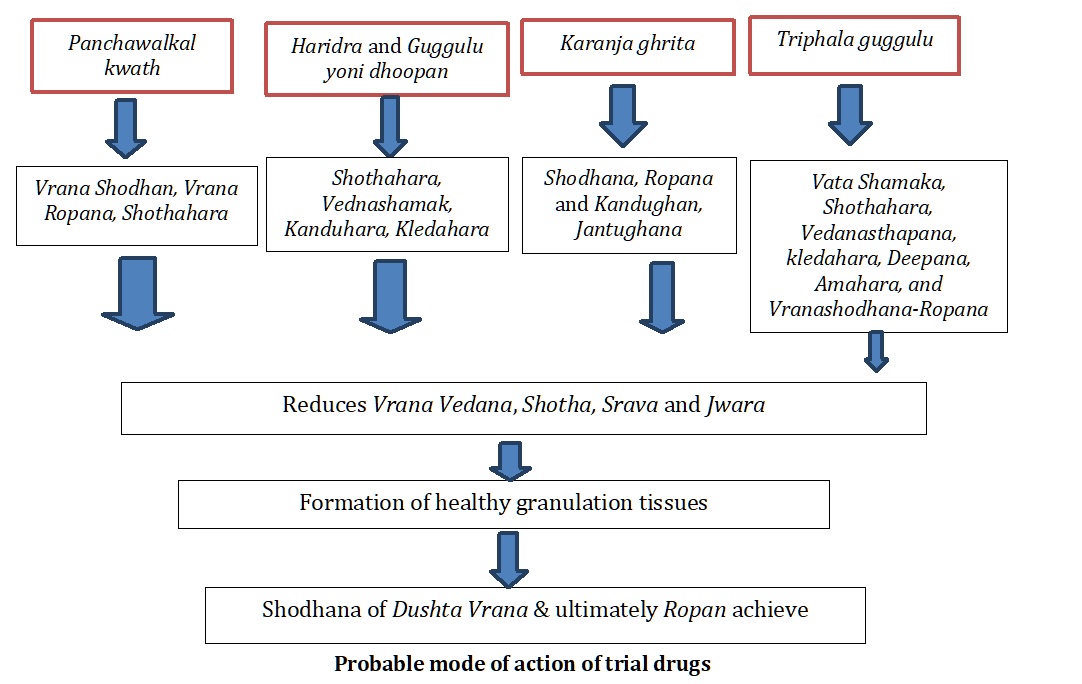Role of Ayurvedic Interventions in the Management of Episiotomy Wound Healing
DOI:
https://doi.org/10.47070/ayushdhara.v11i6.1857Keywords:
Episiotomy wound, Panchawalkala kwath, Karanja ghrita, Yoni Dhoopana, Yoni alepa, Case reportAbstract
An episiotomy is a surgical incision made in the perineum and the posterior vaginal wall during the second stage of labor to aid in a smoother vaginal delivery and to prevent irregular tearing of the perineum. The perineum is a moist area of the body, making it prone to infections and complications related to healing. Women may experience complications after an episiotomy, including pain, swelling, wound infections, discomfort, sepsis, and vulval hematoma, which can disrupt daily activities. Current treatments like analgesics and antibiotics can have side effects such as inflammation, itching, peptic ulcers, and drug resistance. Thus, there is a need for effective management for episiotomy wound healing.
The study involved a single female patient, around 25 years old, who delivered a female child 7 days ago at National Institute of Ayurveda, Jaipur. She visited the outpatient department at the National Institute of Ayurveda in Jaipur after 7 days of delivery complaining of pus discharge through episiotomy stitches, swelling, pain, fever and difficulty in sitting due to an open and unhealthy wound. The patient received treatment that included Panchvalkalkwatha Prakshalan, Yoni Alepa and Yoni Plota with Karanj Ghrita, Yoni Dhoopan with Haridra and Guggulu, and oral medicine Triphala Guggulu (2 tablets twice a day), continuing until the wound healed over 15 days. By the second day, pus discharge reduced, granulation tissue began forming by the seventh day, and the wound closed by 15th day. This study suggests that Ayurvedic treatment is effective for managing episiotomy wounds.
Downloads

Downloads
Published
Issue
Section
License
Copyright (c) 2024 AYUSHDHARA

This work is licensed under a Creative Commons Attribution-NonCommercial-ShareAlike 4.0 International License.


